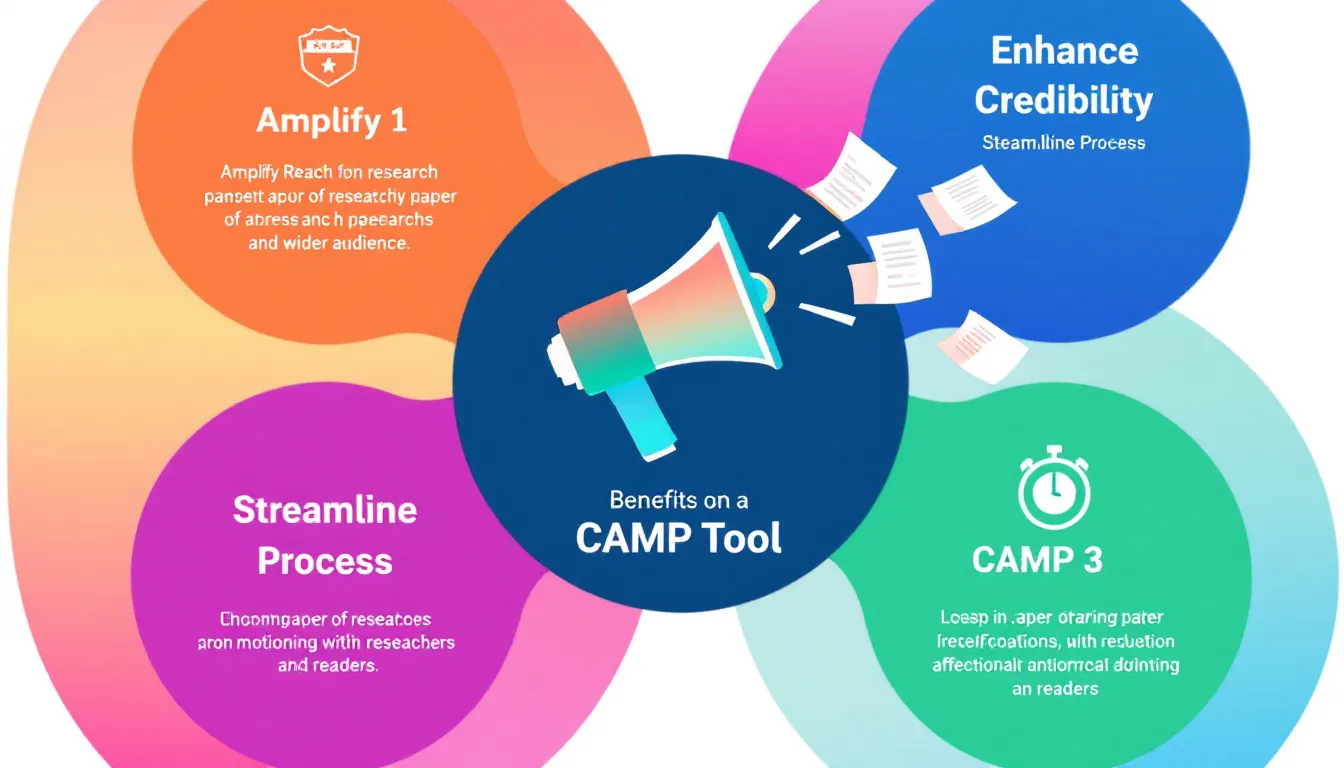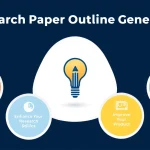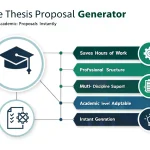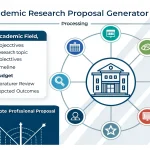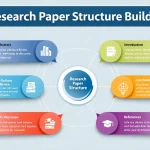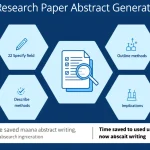Is this tool helpful?
How to Use the Research Paper Promotion Strategy Generator Effectively
Use this tool to receive tailored recommendations that help you promote your research paper to the right audience efficiently. Follow these steps to get the most out of the Research Paper Promotion Strategy Generator:
- Enter the full title of your research paper: For example, you might input “Sustainable Urban Planning in Coastal Cities” or “Advances in Renewable Energy Storage Technologies.” The title helps the tool understand the focus of your work.
- Specify the field or discipline of your research: Indicate the main academic area, such as “Environmental Engineering” or “Energy Systems and Storage.” This lets the tool tailor promotion strategies to your research community.
- Describe your specific target audience: Identify who will benefit most from your research, like “urban planners, climate change policy makers, and civil engineers” or “energy researchers, technology developers, and sustainability advocates.”
- Provide a brief summary of your key findings or contributions (optional): Share highlights like “Our study proposes new materials that increase battery life by 25%” or “Our urban planning model reduces coastal flooding risk by 40%.”
- Enter your institutional affiliation (optional): Input your organization, e.g., “Massachusetts Institute of Technology, Department of Civil and Environmental Engineering” or “Imperial College London, Energy Futures Lab.”
- Click “Generate Promotion Recommendations”: After submitting, the tool will analyze your inputs and provide customized, actionable strategies for promoting your research paper.
Once you receive the tailored recommendations, use them to amplify your research’s visibility across academic and professional channels.
Introduction to the Research Paper Promotion Strategy Generator
In today’s fast-paced academic environment, publishing your research is just the first step. Making sure your work reaches the right audience is crucial for maximizing its impact. The Research Paper Promotion Strategy Generator is a specialized tool designed to help you develop an effective promotion plan tailored specifically to your paper, field, and target audience.
Purpose of the Tool
- Identify the best platforms and channels to disseminate your research.
- Suggest marketing strategies customized to your research field and audience.
- Provide data-informed ideas that increase engagement and reach.
- Combine traditional academic routes with modern digital outreach channels.
- Help you make the most of your publication by broadening its visibility and impact.
Key Benefits for Researchers
- Save time: Quickly receive specific strategies without researching promotion methods yourself.
- Expert guidance: Access recommendations based on established academic marketing practices.
- Personalized approach: Tailors suggestions by considering your research topic, audience, and findings.
- Comprehensive coverage: Integrates advice on journals, conferences, social media, and research networks.
- Boost visibility: Helps your paper gain recognition in relevant academic and professional communities.
- Increase impact: Improved exposure leads to more citations, collaborations, and career opportunities.
Practical Usage of the Research Paper Promotion Strategy Generator
This tool acts as your personal academic marketing assistant by processing the key details of your research paper and providing customized promotional strategies. It does not perform calculations but synthesizes your inputs into actionable advice. Here’s how you can put its recommendations to work:
Using the Generated Promotion Recommendations
- Identify the best journals and conferences: Select venues that align with your field and target audience to submit and present your research.
- Leverage academic and professional networks: Share your paper on platforms like ResearchGate, LinkedIn groups, or specialized forums to engage peers.
- Create accessible content: Develop blog posts, video abstracts, or infographics that summarize your research for broader audiences.
- Engage with media and policymakers: Use the suggested channels to reach industry leaders or stakeholders who can apply or promote your findings.
- Utilize social media strategically: Post updates on platforms relevant to your discipline to foster discussion and networking.
Example Scenario
If you input a paper titled “Innovations in Crop Disease Detection Using Drone Imaging” targeting “agricultural scientists, drone technology developers, and crop consultants,” the tool may recommend:
- Publishing in precision agriculture and remote sensing journals.
- Presenting at conferences like the International Conference on Precision Agriculture.
- Sharing concise findings on LinkedIn and Twitter to connect with industry professionals.
- Creating a short explainer video shared on YouTube and institutional websites.
- Collaborating with agriculture extension services to expand practical applications.
Applying these targeted recommendations ensures your research reaches the right audiences and creates meaningful engagement beyond publication.
Maximizing Your Research Impact with Tailored Promotion Strategies
The Research Paper Promotion Strategy Generator helps you navigate the complexity of academic promotion by delivering focused, actionable advice. Use it to:
- Cut through information overload by honing in on the most effective promotion channels.
- Extend your research’s reach with data-driven and audience-specific strategies.
- Bridge the gap between academic publishing and real-world application.
- Grow your professional network through strategic sharing and engagement.
- Enhance your academic and career prospects by increasing visibility and recognition.
Important Disclaimer
The calculations, results, and content provided by our tools are not guaranteed to be accurate, complete, or reliable. Users are responsible for verifying and interpreting the results. Our content and tools may contain errors, biases, or inconsistencies. Do not enter personal data, sensitive information, or personally identifiable information in our web forms or tools. Such data entry violates our terms of service and may result in unauthorized disclosure to third parties. We reserve the right to save inputs and outputs from our tools for the purposes of error debugging, bias identification, and performance improvement. External companies providing AI models used in our tools may also save and process data in accordance with their own policies. By using our tools, you consent to this data collection and processing. We reserve the right to limit the usage of our tools based on current usability factors.
